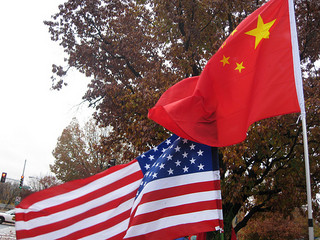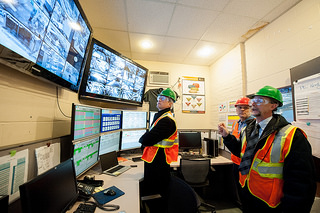Economic and Political Tensions Heighten Between U.S. and China in Response to New Trade Restrictions

On Thursday, March 28, the U.S. passed a law which requires NASA, the Department of Justice, and the Department of Commerce to get approval from federal law enforcement agencies before buying high-tech products from China. The law was a small part of a larger package of the U.S. spending bill. Restrictions are in response to increasing concerns over China’s cyber-attacks on U.S. interests, which the Chinese deny.
China, in turn, has accused the U.S. of launching serious cyber-attacks on websites belonging to the Chinese military. Chinese newspapers, such as China Daily and Xinhua, printed harsh articles in response to the U.S. requirements. The U.S. government is particularly concerned about two Chinese tech manufacturers, Huawei and ZTE.
A spokesman for the Chinese Ministry of Commerce, Shen Danyang, also had strong words in opposition to the legislation, saying the measures will further damage economic relations between the countries. According to Danyang, the measures won’t just damage the relations between the U.S. government and China, the law will also hinder trade between U.S. companies and enterprises in China.
According to a recent report released by the U.S. Congressional Research Service, the U.S. imports about $129 billion worth of advanced technological products from Chinese companies each year. Chinese news agencies and government spokespersons said the measures were discriminatory and presumed the guilt of all Chinese tech manufacturers.
The White House maintains the Chinese are initiating cyber-attacks on U.S. interests on, “an unprecedented scale.” The attacks China is accused of initiating include those on several nuclear weapons laboratories, several federal departments (including the Dept. of Homeland Security, Dept. of Energy, and Dept. of State), The Wall Street Journal, the New York Times, Bloomberg, Google, Adobe, Yahoo!, Coco-Cola, Dow Chemical, and several defense contractors (such as Lockheed Martin and Northrop Grumman). China continues to deny all allegations of cyber terrorism.







